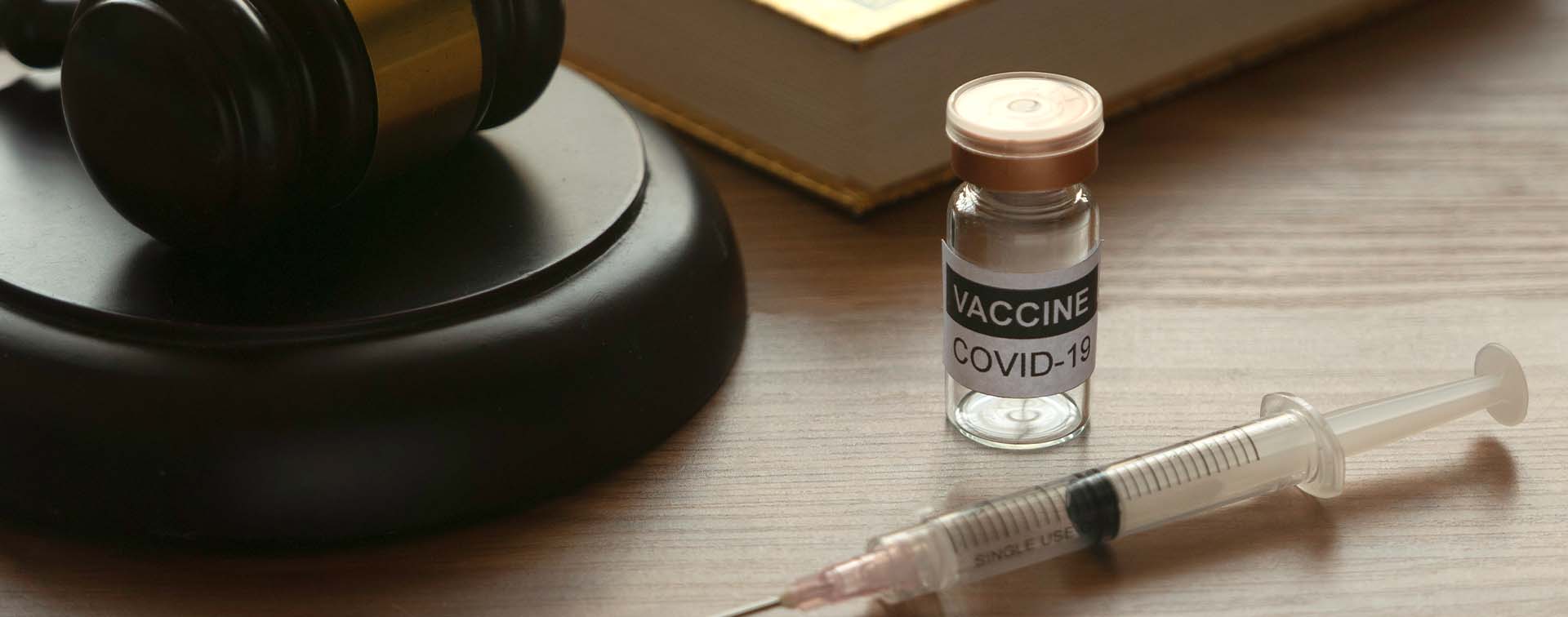
Prof. Mehari Taddele Maru is a Part-time Professor at the Migration Policy Centre and Academic Director of the Young African Leaders Programme at the School of Transnational Governance, European University Institute. He is also a Fellow at the United Nations University Institute on Comparative Regional Integration Studies in Bruges, Belgium.
Salus populi suprema lex esto (the health of the people should be the supreme law), the often-quoted Cicero saying, embodies the classic tension between public health imperatives and individual freedom. This tension has been amplified by the Covid-19 pandemic, which has posed complicated legal, ethical, and enforcement dilemmas. Pandemic mandates have implications on human rights at the individual and public levels. Moreover, pandemic mandates impact politics, finance, and religious rituals.
To begin with the rudiments, responses to pandemics, as in the case of Covid-19, may take the form of quarantines, social distancing, compulsory business closures, masking, and vaccine mandates. Public health imperatives permit vaccination and other prohibitive directives. These restrictions infringe on people's privacy in the form of surveillance, mandatory declarations of health status, and compulsory testing. The health measures limit freedom of movement. From a scientific standpoint, vaccine mandates accelerate the vaccination rates and coverage. In contrast, from a human rights perspective, pandemic mandates constrain the freedom of people to make their own decisions regarding their health.

The legal tension between public health measures versus individual freedoms is a recurring public policy dilemma requiring many levels to consider the tradeoff. Legal imperatives uphold the legitimacy of the use of coercion to ensure compliance with health measures to control the pandemic. Every state has the primary duty to respect, protect, and fulfill human rights to its own population. Pandemics pose grave and sustained threats to the right to life, to health, to freedom of movement, to religious practices, and to privacy. As stipulated in the International Health Regulations (IHR), all public health measures in response to pandemics need to be explicitly anchored in human rights values and standards.
Substantial scientific evidence shows that vaccine mandates and other restrictions save lives and improve health. In principle, science — not politics — should dictate the mandates related to public health. In this, the law serves as an instrument to uphold evidence-based decisions to limit the rights of individuals during a pandemic. Nonetheless, the response to the Covid-19 pandemic poses distinctive and highly political debates. With it, the rift between science and politics re-emerged. With the rise of identity politics, science came under attack from ultra-nationalist politicians who refused to accept scientific evidence that did not support their claims about causes, dynamics, and consequences of the measures taken to control Covid-19. Leaders, including the former president of the USA, undermined science-led approaches to resolving the pandemic and its spread.
More importantly, the impact of pandemic measures on livelihoods, particularly on poor communities in informal settlements, has been far-reaching. The restrictions have also increased psychological and social vulnerability.
In addition to the prohibitive mandates, the Covid-19 pandemic has increased public spending for health and socioeconomic services. Such spending poses furious and noisy ideological debates emanating from divergent domestic policy positions of political forces. For some, the pandemic vindicates their stance on the need for large social spending, including in health services. For others, such public spending is worse than the pandemic itself.
Other important ethical and legal issues arise from the competing responsibilities for domestic constituency and the international community, and associated differential commitment and the allocation of resources for domestic public health measures and contribution to the global response. Such divergence of policy positions among states impacts the efficacy and quality of actions taken to fight the pandemic internationally, thus negatively affecting the global health governance.
According to the IHR, all countries have a responsibility to build strong healthcare systems and work to identify and contain public health events before they spread. Nonetheless, not all countries are equally willing or capable of imposing mandatory restrictions and requirements and rolling out vaccines. The alpha and omega of implementing international norms remain states that are signatories to the IHR. Governments — including all their sectors, ministries, levels, officials, and personnel — are responsible for implementing the regulations at a national level. While such obligations are most often jurisdictionally limited to borders of states, the pandemic remains borderless, requiring a transnational and global response based not only on enlightened national self-interest but also on equity demands.
The Covid-19 pandemic is thus a global threat that has impacted global interests. It is a pressing threat to global public health and international trade, tourism, sports and culture, worldwide peace and security. Effective responses to pandemics rely heavily on the ability of states to predict, prevent, respond, and adapt to public health events. The benefits of mandatory restrictions, requirements, and vaccines far outweigh the harm to the person or the state. In the absence of alternatives, vaccine mandates should be expanded in all countries. Hence, the international community has a responsibility to ensure vaccine mandates extend beyond the specific jurisdictions. As provided under the UN Charter and other global and regional instruments, states that are unable to provide required public health interventions such as vaccines need international assistance.
At the same time, those with the means need to take more responsibility in delivering vaccines. The UN asserts that “states should thus have an active programme of international assistance and cooperation and provide economic and technical assistance to enable other states to meet their obligations concerning the right to health.” International cooperation is imperative when a state is unable to address public health risks with global implications. This imposes extraterritorial obligations on states and international bodies to assist other states as part of global solidarity. Beyond legal duty, there are moral and ethical imperatives for equity, and international responsibility sharing as the benefits of such public health mandates are truly global. In this regard, support to developing countries, particularly support to Africa's desire to build its own vaccine production capability, is both an ethical and legal duty.
The tension between international responsibility and parochial vaccine nationalism has also cropped up with the pandemic. As witnessed in many developed nations, vaccine nationalism stood against international cooperation towards more ethical and equitable provision of global health services. The USA’s opposition to lifting restrictions on trade in essential medical goods and the continued blocking of the WHO's effort to waive intellectual property rights restrictions by big pharmaceuticals are additional barriers to vaccine equity. Tensions have also arisen between global health necessities and other kinds of international agreements such as those for trade and patents. Divergence in national policies impede agreements on access to patents on medicine and technologies and the type and severities of restrictions they impose. In this regard, global public health imperatives trump international agreements on patents and pharmaceuticals.
The Covid-19 pandemic brought longstanding tension between individual rights and public health imperatives to the forefront.
Public authorities are bound by law to take precautionary measures to ensure safety despite the high level of uncertainty. The Covid-19 mandates impose legal, ethical, and enforcement responsibilities on individuals and institutions. They are crucial components of public health measures. Such measures are not out of the ordinary when a nation and the global community face such extraordinary risks to public health. Society and its state should strive to expand the freedom of individuals. Even if freedom of the individual remains essential, the nation's public health and, for that matter, humanity takes priority. Measures to halt or reduce the spread of the pandemic and harm to the lives and wellbeing of people constitute a pressing social need. As such, vaccine mandates have a legitimate goal to achieve. Thus, liberty could be restricted by public health measures, including mandatory vaccines, and other forms of health-related interventions that are considered necessary in a democratic society. Such measures need to pass the necessity, legality, and proportionality test.
The risk of mutation and emergence of more variants due to low vaccination rates present a clear risk for global health. Abandoning those with fewer means to deal with pandemics is dangerous for national public health, damages global solidarity, and violates ethical considerations. International cooperation to halt the spread of Covid-19 and the outbreak of new pandemics is not only good diplomacy but essentially constitutes an enlightened pursuit of self-interest.
Mutual interdependence, solidarity, and responsibility sharing are key instruments for more ethical and transnational health governance. States, particularly the most affluent ones, shape the legal, ethical, and enforcement issues related to responses to the Covid-19 pandemic and access to vaccines. Addressing the gross inequality in the capabilities of states to respond to the pandemic is a true expression of international solidarity — which is hoped to address global inequity in public health to the fulfilment of the universal right to health.
Henley & Partners assists international clients in obtaining residence and citizenship under the respective programs. Contact us to arrange an initial private consultation.

Have one of our qualified advisors contact you today.
We use cookies to give you the best possible experience. Click 'Accept all' to proceed as specified, or click 'Allow selection' to choose the types of cookies you will accept. For more information, please visit our Cookie Policy.